How to get URL link on X (Twitter) App
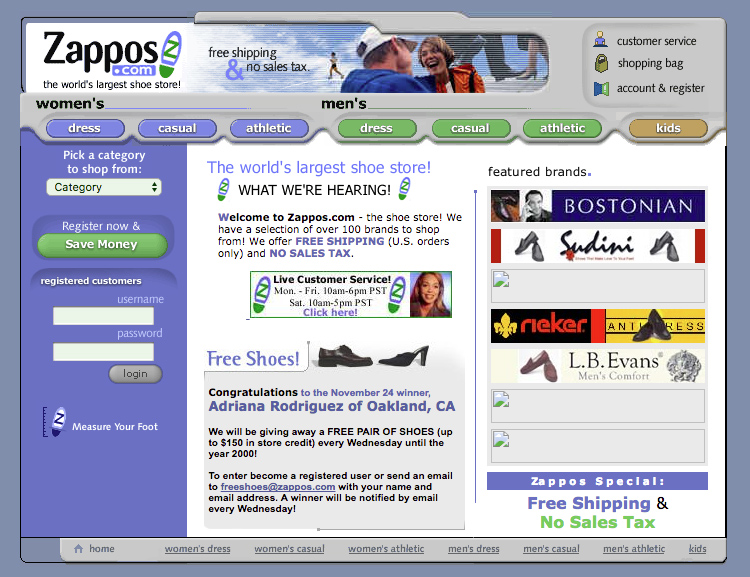

 🗣 They share what they know for free.
🗣 They share what they know for free. 
 Audience-first: Build an audience before building a product.
Audience-first: Build an audience before building a product.
 Hypothetical 1:
Hypothetical 1: 
 🤝 Share of earnings
🤝 Share of earnings
 On curriculums & live classes:
On curriculums & live classes: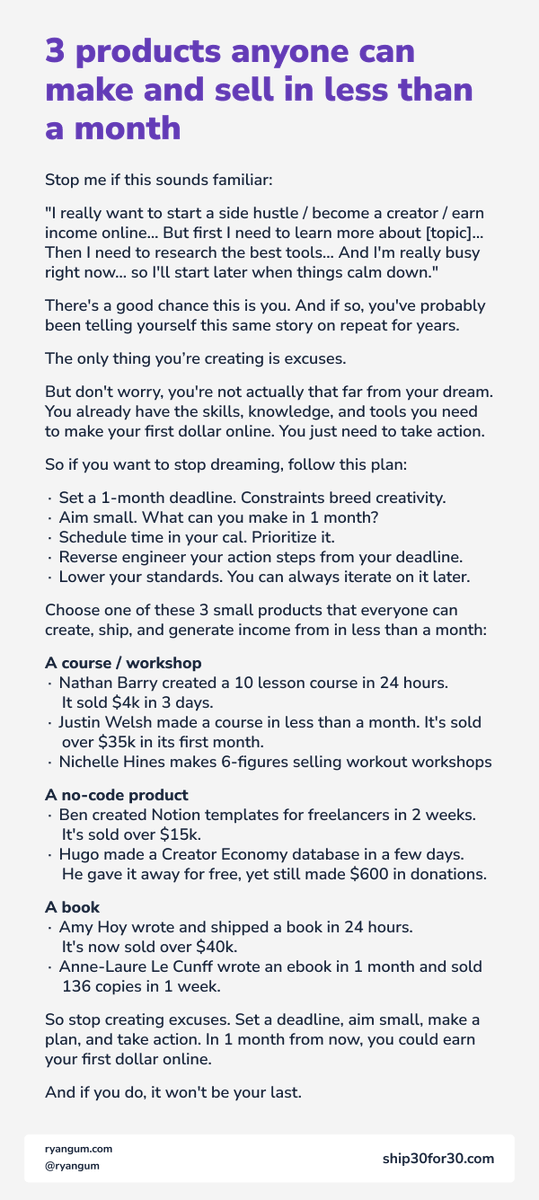
 There's a good chance this is you. And if so, you've probably been telling yourself this same story on repeat for years.
There's a good chance this is you. And if so, you've probably been telling yourself this same story on repeat for years.
 🎯 Set a goal
🎯 Set a goal 
 They're prolific.
They're prolific. 
 They were all conceived and written in less than 1 hour.
They were all conceived and written in less than 1 hour. 
 At this level, almost no one is doing it alone. They’re supported by YouTube editors & writers, podcast producers, online course coaches, agents that find and negotiate brand sponsorship deals, and assistants.
At this level, almost no one is doing it alone. They’re supported by YouTube editors & writers, podcast producers, online course coaches, agents that find and negotiate brand sponsorship deals, and assistants. 
 10 days ago I had a stale Twitter account, a fear of writing, and a bigger fear of publishing. Since then I've written & published 10 short essays online, & my ideas have now been seen over a million times.
10 days ago I had a stale Twitter account, a fear of writing, and a bigger fear of publishing. Since then I've written & published 10 short essays online, & my ideas have now been seen over a million times.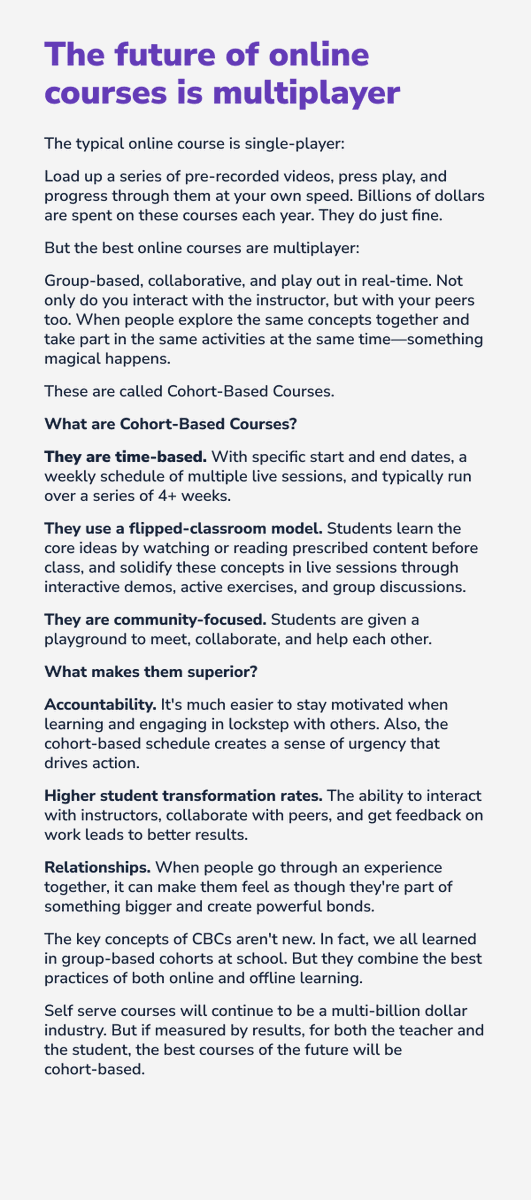
 The typical online course is single-player:
The typical online course is single-player: 
 Creators have many monetization options, but the wrong choice in the wrong situation can lead to less money and more work.
Creators have many monetization options, but the wrong choice in the wrong situation can lead to less money and more work.
 Creating a digital product, and don't know how to price? Start with this exercise.
Creating a digital product, and don't know how to price? Start with this exercise.
 In 2013, Ankur Nagpal was a Udemy instructor selling app marketing courses.
In 2013, Ankur Nagpal was a Udemy instructor selling app marketing courses. 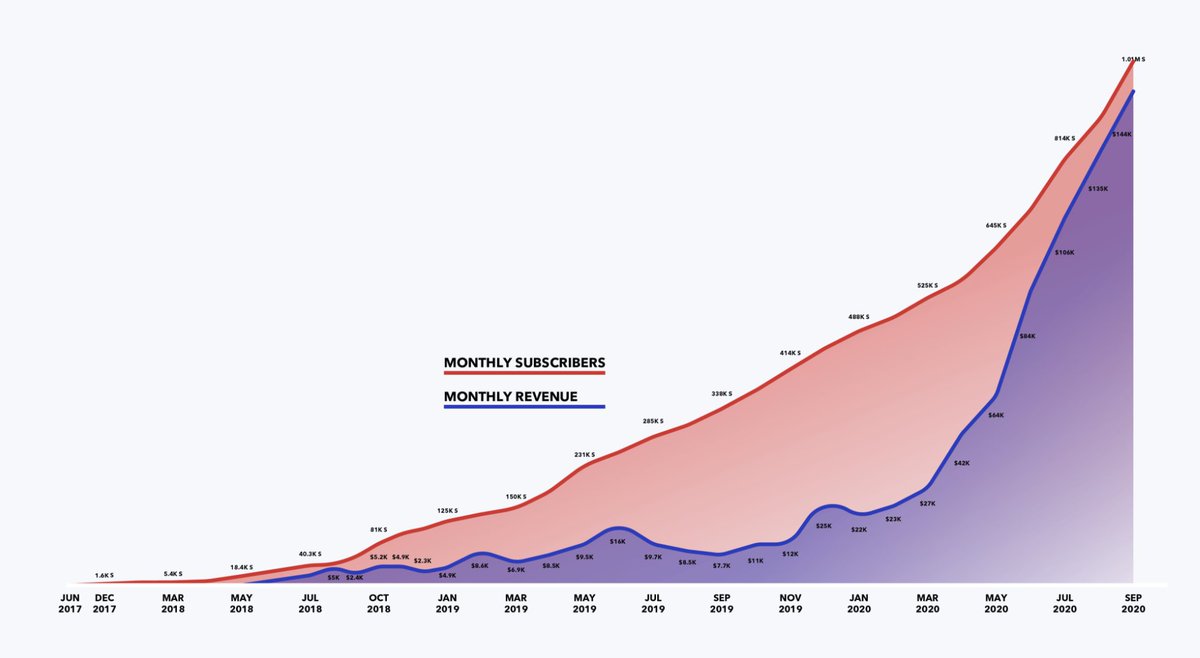
 In 2017, @AliAbdaal created a YouTube channel.
In 2017, @AliAbdaal created a YouTube channel.
 In 2009, Udemy created a course marketplace.
In 2009, Udemy created a course marketplace. 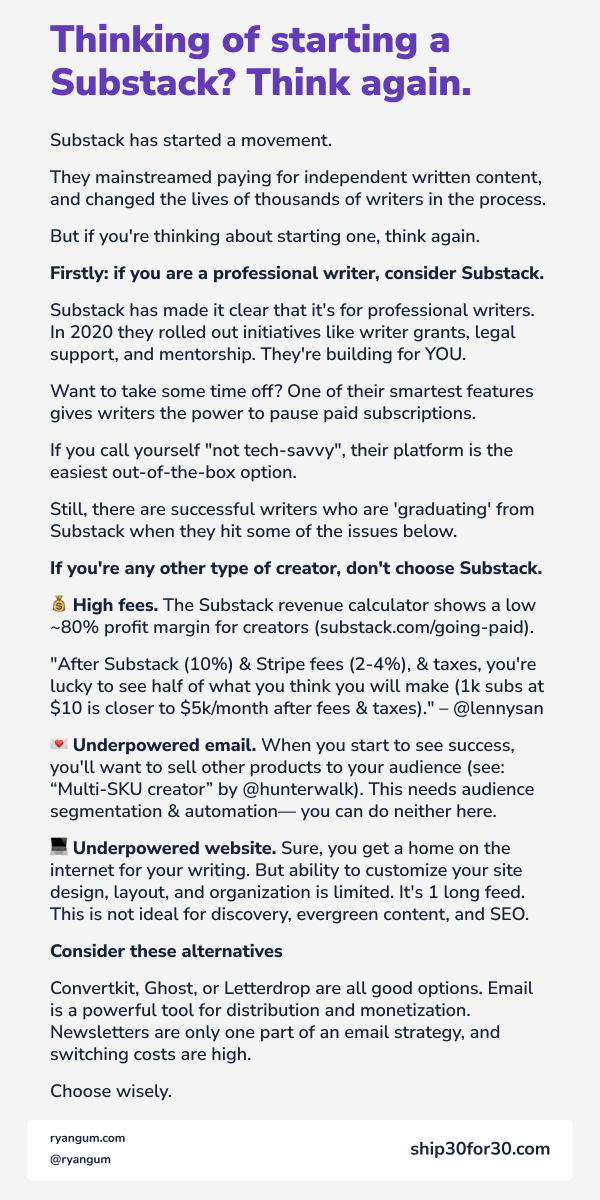
 As someone working in the creator economy space, I love the movement that Substack started.
As someone working in the creator economy space, I love the movement that Substack started.